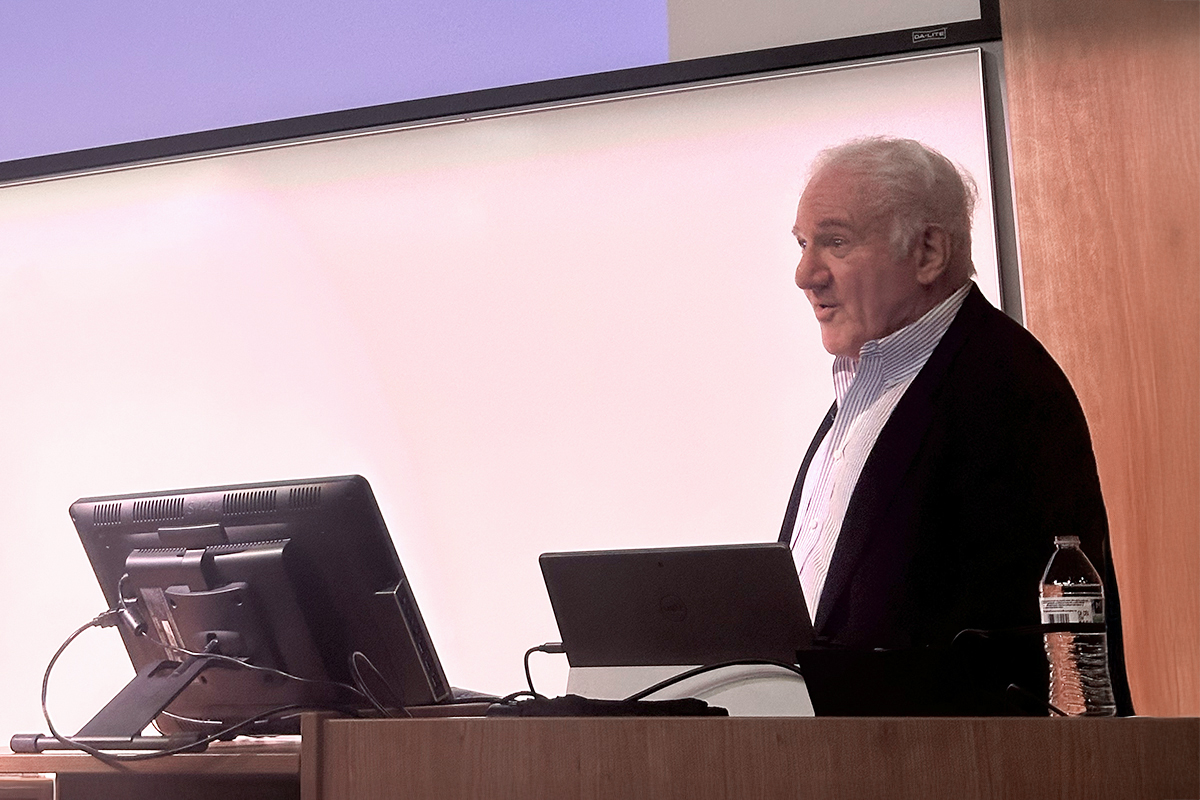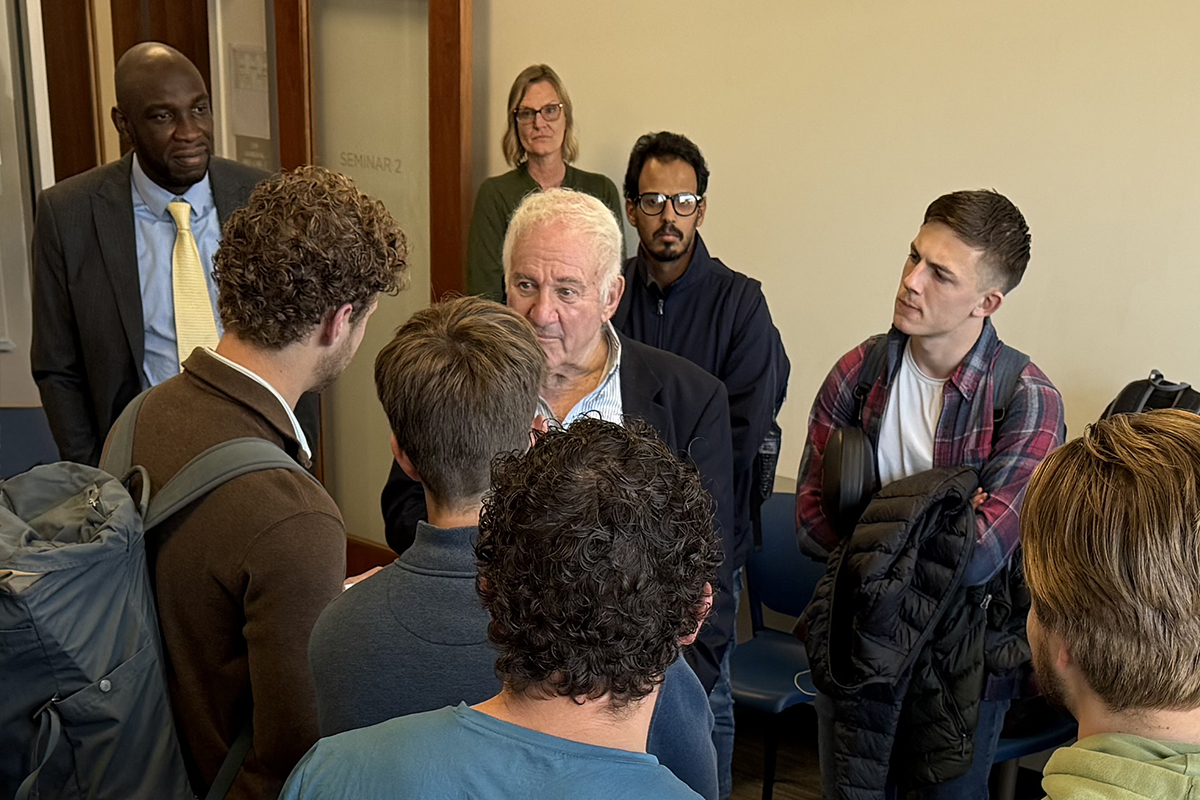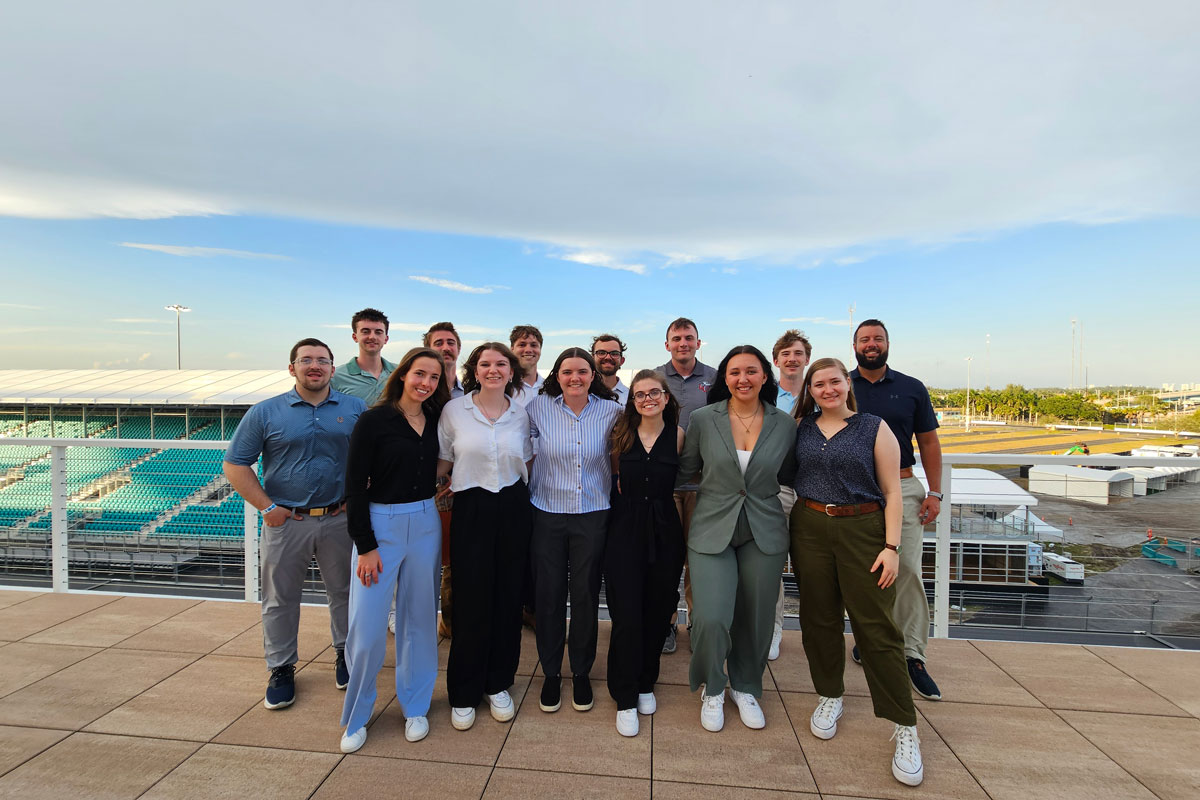Search News Archives
Filter News Articles
Additional Navigation
Johns Hopkins professor delivers lecture on breakthrough reproductive biology research
November 21, 2024 : By Ryan Klinker - Office of Communications & Public Engagement

Johns Hopkins Bloomberg School of Public Health Professor Dr. Barry Zirkin visited Liberty University’s School of Health Sciences on Oct. 28 to deliver an illuminating lecture about his past and present work in reproductive biology research, marking the launch of the Biology & Chemistry Lecture Series for the 2024-25 academic year.
An internationally recognized expert in his field, Zirkin serves in the Department of Biochemistry and Molecular Biology at Johns Hopkins and has authored over 250 scientific papers and received numerous prestigious awards, including the MERIT Award from the National Institute on Aging. He is an American Association for the Advancement of Science (AAAS) Fellow and President of the American Society of Andrology.
During his talk, Zirkin shared insights from his groundbreaking discoveries on male reproductive health, mainly his pioneering studies about testosterone’s role in male reproduction. His research demonstrated that while sperm production can continue with reduced testosterone levels, there exists a critical threshold of intratesticular testosterone necessary for normal sperm creation. This finding has significant implications for male contraception and infertility treatments.
A major breakthrough from his research involved identifying how adult Leydig cells — the testosterone-producing cells in the testes — develop from stem cells. Zirkin’s team developed methods to maintain the cells’ testosterone production in vitro for months, creating new opportunities for studying cellular aging and hormone regulation. The work has transformed scientists’ understanding of testosterone production and male fertility. His team’s discoveries about age-related changes in testosterone production have opened new avenues for treating male hypogonadism (underproduction of sex hormones in sex glands) without the cardiovascular risks associated with traditional testosterone replacement therapy.
“The lecture was a wonderful opportunity to hear about the research process and questions explored that have led to Dr. Zirkin’s development of a potential therapeutic addressing a common men’s health issue,” said Abigail Reno, a senior studying biomedical sciences. “What stood out to me was Dr. Zirkin’s passion about making men’s health issues common conversation, with hopes to promote awareness and improve quality of life. The entire experience made me deeply appreciative for the excellent education the science faculty has provided me. The standard of excellence that is expected from the students here cultivates an environment for competent collaboration with the best and brightest in the field of medicine and research.”

“Dr. Zirkin’s recent lecture was both enlightening and masterfully delivered,” added Dr. Ben Kalu, chair of Biology & Chemistry. “His ability to engage the audience with complex topics in reproductive biology was truly impressive. His patience and willingness to share his expertise have set a remarkably high standard for future lectures in our department. We are deeply grateful for his contribution and the inspiration he has provided to our academic community.”
After the lecture, Zirkin took time to meet with students and faculty.
“The conversation that took place after the lecture provided the opportunity for my peers and I to digest the lecture and collaboratively brainstorm,” Reno said. “When my classmates and I asked our questions, Dr. Zirkin honestly did not have answers to most of them. He humbly referred us to look into his colleagues’ research that focused more on the nature of some of the questions. This highlights the multifaceted nature of research and emphasizes the importance of collaboration for topics to be fully understood.”


